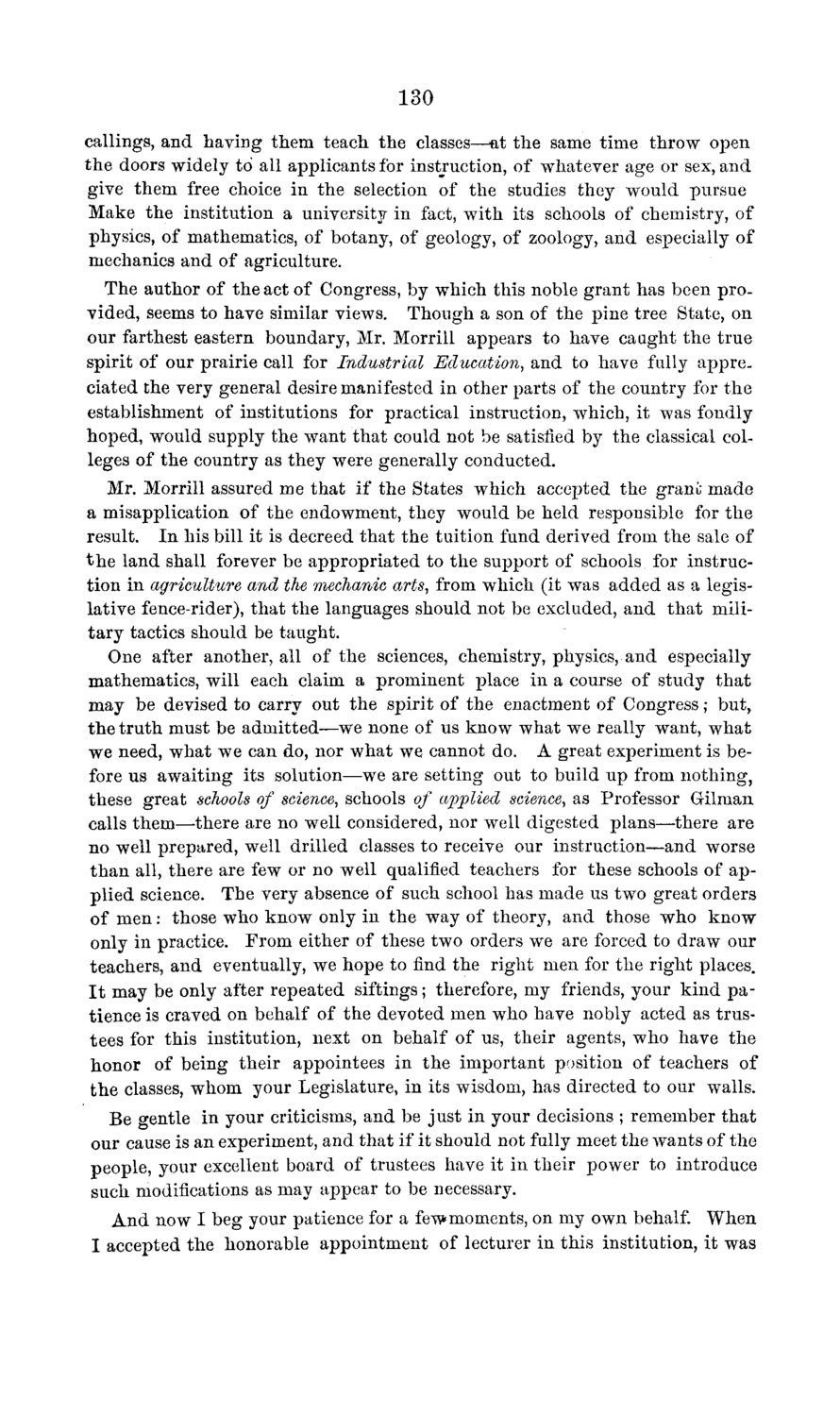| |
| |
Caption: Board of Trustees Minutes - 1869
This is a reduced-resolution page image for fast online browsing.

EXTRACTED TEXT FROM PAGE:
130 callings, and having them teach the classes—fit the same time throw open t h e doors widely to all applicants for instruction, of whatever age or sex, and give them free choice in the selection of the studies they would pursue Make the institution a university in fact, with its schools of chemistry, of physics, of mathematics, of botany, of geology, of zoology, and especially of mechanics and of agriculture. The author of the act of Congress, by which this noble grant has been provided, seems to have similar views. Though a son of the pine tree State, on our farthest eastern boundary, Mr. Morrill appears to have caught the true spirit of our prairie call for Industrial Education, and to have fully appreciated the very general desire manifested in other parts of the country for t h e establishment of institutions for practical instruction, which, it was fondly hoped, would supply the want that could not be satisfied by the classical colleges of the country as they were generally conducted. Mr. Morrill assured me that if the States which accepted the granc made a misapplication of the endowment, they would be held responsible for the result. I n his bill it is decreed that the tuition fund derived from the sale of t h e land shall forever be appropriated to the support of schools for instruction in agriculture and the mechanic arts, from which (it was added as a legislative fence-rider), that the languages should not be excluded, and t h a t military tactics should be taught. One after another, all of the sciences, chemistry, physics, and especially mathematics, will each claim a prominent place in a course of study t h a t may be devised to carry out t h e spirit of the enactment of Congress; but, the truth must be admitted—we none of us know what we really want, what we need, what we can do, nor what we cannot do. A great experiment is before us awaiting its solution—we are setting out to build up from nothing, these great schools of science, schools of applied science, as Professor Gilman calls them—there are no well considered, nor well digested plans—there are no well prepared, well drilled classes to receive our instruction—and worse t h a n all, there are few or no well qualified teachers for these schools of applied science. The very absence of such school has made us two great orders of m e n : those who know only in the way of theory, and those who k n o w only in practice. From either of these two orders we are forced to draw our teachers, and eventually, we hope to find the right men for the right places. I t may be only after repeated sittings; therefore, my friends, your k i n d patience is craved on behalf of the devoted men who have nobly acted as trustees for this institution, next on behalf of us, their agents, who have the honor of being their appointees in the important position of teachers of the classes, whom your Legislature, in its wisdom, has directed to our walls. Be gentle in your criticisms, and be just in your decisions ; remember that our cause is an experiment, and t h a t if it should not fully meet the wants of the people, your excellent board of trustees have it in their power to introduce such modifications as may appear to be necessary. A n d now I beg your patience for a few* moments, on my own behalf. When I accepted the honorable appointment of lecturer in this institution, it was
| |